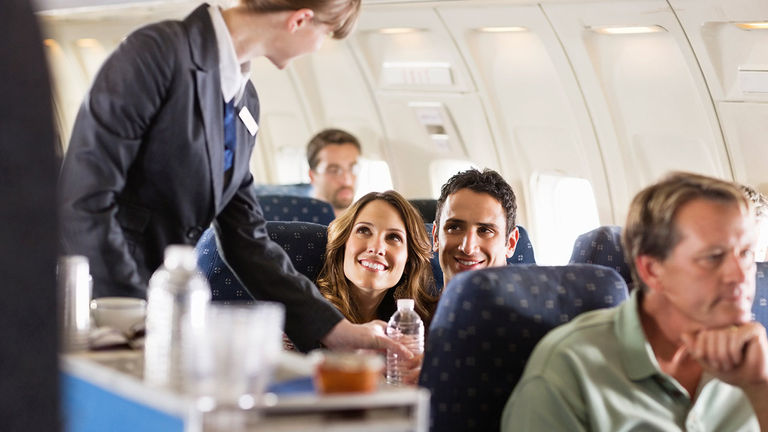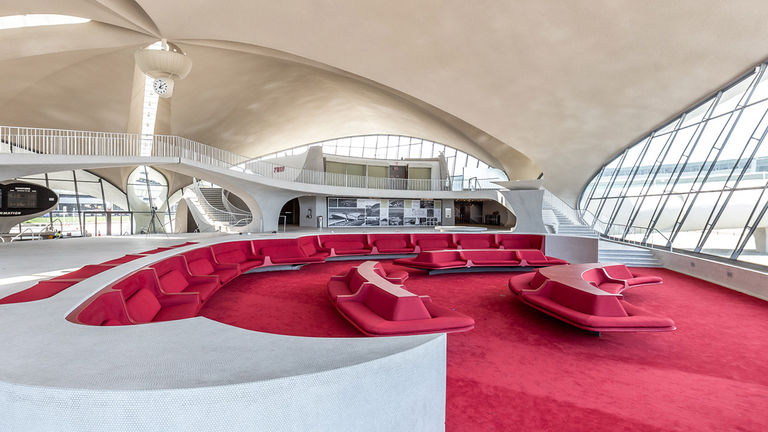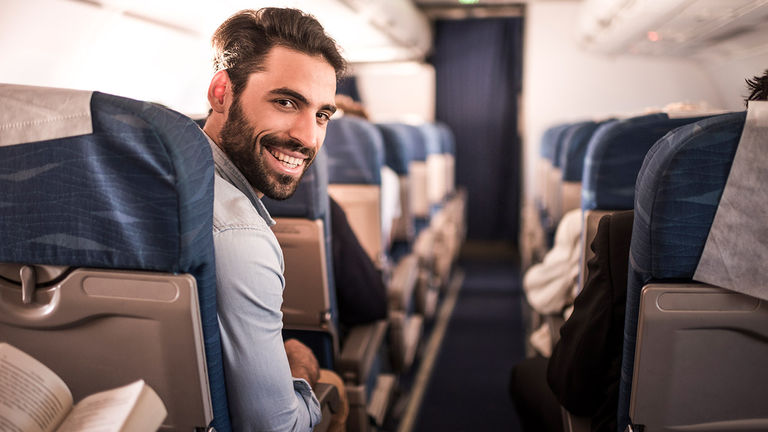As air travel becomes increasingly complex — with more security issues, branded classes of service, technological advances and airport construction — the role of the travel agent will become even more important. That’s one of the top predictions for the new year from Peter Vlitas, senior vice president of airline relations for Travel Leaders Group (TLG).
“What we have seen, as the complexities have increased, is that travel agents have gotten much better at explaining the value proposition,” Vlitas said. “Your travel expert is going to tell you where to go in the airport and where to sit on the plane. We have also seen more electronic communication — such as emailing and texting — between the customer and the agent.”
 Some passengers will spend more for better service.
Some passengers will spend more for better service.
Credit: 2018 Getty Images
Indeed, as airlines face new challenges and opportunities in the new year, so, too, do the advisors who sell travel. Here are a few topics that are likely to dominate the conversation in 2019.
Continued Growth
The airline industry will continue to expand, according to a recent report by Oxford Business Group, which notes that commercial airlines experienced annual average passenger increases of 6.2 percent between 2012 and 2017. As a result, airlines and aviation authorities are pumping money into airport infrastructure, route expansion and fleet capacity. But this growth can create challenges, including safety and congestion concerns, as well as an increased need for skilled employees.
“One of the biggest trends we’ll see in 2019 is continued investment in airport infrastructure projects, without adding to the tax burden placed on the traveling public,” said Alison McAfee, managing director of communications for Airlines for America, the trade and lobbying organization that represents the airline industry. “Airlines have been actively collaborating with their airport partners on widespread infrastructure investment. New York’s LaGuardia Airport’s central terminal, New York’s John F. Kennedy International Airport and New Jersey’s Newark Liberty International Airport are all examples of major airport projects that are moving forward without a tax hike on passengers.”
 John F. Kennedy International Airport is working on infrastructure improvements.
John F. Kennedy International Airport is working on infrastructure improvements.
Credit: 2018 Max TouheyIn addition, according to McAfee, passengers will enjoy good deals, with airfares that are 40 percent lower than before deregulation in 1978, when adjusted for inflation.
“We expect this trend to continue in 2019,” she said.
Economic Challenges
Airlines may see some impacts to their own bottom lines, according to Jay Sorensen, president of IdeaWorksCompany, a Wisconsin-based marketing consulting firm.
“High fuel prices will likely be an issue during 2019, along with the likelihood of global economic problems,” he said.
 Global economic issues may impact airlines' bottom lines.
Global economic issues may impact airlines' bottom lines.
Credit: 2018 Getty ImagesSorensen says he feels that some of the foreign policies put into place by the Trump administration will catch up to the U.S. economy in 2019, and that the global economy will tilt toward recession due to a spreading tariff war, and fuel prices will jump due to issues in the Middle East involving Iraq, Israel and Saudi Arabia.
Triant Flouris, provost and chief academic officer for Hellenic American University in Nashua, N.H., agrees that the industry may face economic barriers.
“Fuel prices, dull economic conditions and increasing competition are issues that challenge the revenue-generating potential of airlines,” he said.
Diversification of Revenue
These economic challenges will encourage the industry to look for profits outside the traditional channels, according to Flouris.
“Airlines will continue to explore new ways of changing the course in revenue generation,” he said, noting the potential for profit in selling ancillary products and services, including branded classes of service.
A recent IdeaWorksCompany industry analysis predicted more of this money-seeking diversification, as well. The study highlighted several examples of profitable new revenue streams — including Ryanair Rooms, a hotel booking service operated by budget airline Ryanair, and branded fares, which allow passengers to upgrade amenities onboard and on the ground.
“Premium-style services will flourish, as airlines learn that a portion of consumers are willing to pay more for better service,” Sorensen said. “This does not necessarily suggest that first-class cabins will be filled, but rather, that services that allow travelers to use a la carte features to achieve premium service will become prevalent. We will also see the beginnings of a more effective effort to lure a larger share of consumer travel spending, such as hotel and car hire.”
More Tech Than Ever
From apps to in-flight entertainment to airport security, technology is an ever-evolving part of the air travel experience. Biometric technology — a combination of facial and iris recognition used for security screening — will likely see more growth in 2019. For example, the World Travel & Tourism Council, which represents the private travel sector around the world, recently announced a series of pilot programs to test that technology.
 The use of biometric technology will likely increase in 2019.
The use of biometric technology will likely increase in 2019.
Credit: 2018 Getty ImagesThe test program will allow some passengers to try biometrics in the first half of 2019, on flights between Dallas/Fort Worth and London, as part of a collaboration between American Airlines, Dallas/Fort Worth International Airport, Hilton and MSC Cruises. Biometric information will be used for airline and airport security and identification, as well as for car rental and hotel check-in.
Other airlines will continue to progress with biometric technology, too. Emirates has launched trials of what it calls the “world’s first biometric path” at Dubai International Airport, while LATAM Airlines is laying claim to be the first airline group in South America to use facial recognition biometrics for its boarding process, at Uruguay’s Carrasco International Airport.
TLG’s Vlitas notes that low-cost carriers will likely be the slowest adopters of new technology.
“If you look at Spirit Airlines, it’s a bus,” he said. “They’re not going to have biometrics, they’re not going to have RFID tags. That costs money.”
Going Green
Carriers around the globe are eyeing eco-friendly practices more than ever. Delta Air Lines, for example, is removing a variety of single-use plastic items from its aircraft and its Delta Sky Clubs, following the removal of plastic wrap from international main cabin cutlery this past April. And United Airlines set a goal in September to cut its greenhouse gas emissions by 50 percent over the next few decades.
“I think 2019 is going to be a good year,” Vlitas said. “A lot of initiatives that will come out are just in the beginning stages, and we’ll see them more in a couple years. Everyone’s going to try to outdo each other with the bells and whistles.”